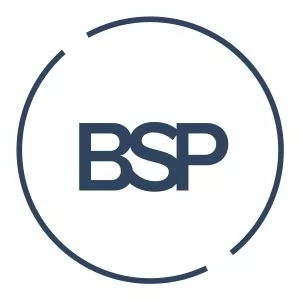Background
The Green paper issued in 2003 by the European Commission on European Entrepreneurship acknowledged the need for Europe to foster entrepreneurial drive more effectively.
The Internal Market, created by the European Union, is evolving through the removal of barriers and through mutual recognition and harmonisation. It facilitates trading in a market of approximately 450 million people triggering changes, which led to new opportunities for new entrepreneurial initiative, particularly in the area of services.
The capacity to adapt to economic changes is crucial for competitiveness. Hence, entrepreneurship is relevant for firms in all sectors, technological or traditional. New entrepreneurial initiatives boost productivity, increase competitive pressure, forcing other firms to react by improving efficiency or introducing innovation.
Therefore, considering the geographical situation of Luxembourg in the center of the European Union, and the various steps taken by the neighbouring countries like Belgium (Société privée à responsabilité limitée Starter or SPRL Starter)1, France (Entreprise Individuelle à Responsabilité Limitée (EIRL)2 and Germany (Mini-GmbH or Unternehmergesellschaft mit beschränkter Haftung (UGG))3, which have recently introduced simple and efficient instruments in this respect, it became obvious for Luxembourg to react quickly and efficiently in order to foster the entrepreneurship in Luxembourg.
It is on February 2nd 2015 that the draft law N°6777 having the purpose of creating a simplified private limited liability company (Société à responsabilité limitée simplifiée) (SàrlS) amending the law of August 10th 1915, on commercial companies, as amended (the Company Law) (the Draft Law 6777) was filed.
In compliance with the Luxembourg governmental program presented in December 2013, the Draft Law 6777 intends to stimulate the development of the entrepreneurial spirit by creating, for entrepreneurs that are natural persons, a legal structure that not only offers a protection in terms of personal liability, but also enhances their visibility.
Indeed, one of the toughest hurdles to overcome for young entrepreneurs or those that have access to limited resources is constituted by the minimum required capital necessary for the setting up of a company. Henceforth, the Luxembourg government wished to provide, through the creation of the SàrlS, entrepreneurs with a legal structure that will enjoy a simplified, fast and efficient setting-up process and allow for the reduction of costs that the incorporation of a company usually implies.
Characteristics of the SàrlS
- A variation of the Sàrl: In order to take advantage of the existing, efficient and flexible legal structures available under the Company Law, the Draft Law 6777 does not create an entirely new type of company but intends to create a variation of the existing private limited liability company (Société à responsabilité limitée) (Sàrl) which has proven great deal of flexibility whilst ensuring a sound legal structure. In other words, the existing rules regulating the Sàrl will apply to the SàrlS except when provided otherwise by the Company Law.
- Condition for setting up a SàrlS: Pursuant to Draft Law 6777, a SàrlS may be set up by a private deed, a special deed or a notarial deed, which will be published. The choice is up to the founder of the company.
- Denomination: the SàrlS must states either in full, "Société à responsabilité limitée simplifiée" or in abbreviation "SàrlS".
- An initial share capital of Euro 1: an outstanding characteristic of the SàrlS is that it may be incorporated with a corporate capital amounting to Euro 1. Thus, the corporate capital of a SàrlS may be comprised between Euro 1 and Euro 12,394.68.
- Legal reserve: Draft Law 6777 provides for the obligation to create a (non-distributable) legal reserve funded on a yearly basis by the allocation of one-twentieth (5%) of the net profits. Such allocation shall cease to be compulsory when the aggregate amount of the legal reserve and the corporate capital shall reach Euro 12,394.68.
- Issuance of corporate units: Draft Law 6777 provides that the initial share capital of the company must be entirely subscribed and paid-up.
- An instrument aimed at natural persons: Draft Law 6777 emphasizes that the SàrlS is strictly aimed at providing natural persons having limited resources with an easily accessible legal structure. Therefore, Draft Law 6777, clearly mentions that legal entities may not participate in a SàrlS, as such operation would be null and void. Moreover, pursuant to Draft Law 6777 a natural person cannot be a shareholder of more than one SàrlS.
- A company limited to certain activities: Draft Law 6777 limits the corporate objet of SàrlS to activities that require a business permit application (i.e. Commercial, craft and industrial activities, as well as certain liberal professions).
- Non limited duration: Draft Law 6777 does not provide for a time limit in order to reach the minimum capital requirement of a Sàrl.
- Conversion: Once the SàrlS is running and that it has established a financial stability notably by reaching the minimum capital requirement of Euro 12,934.68, the shareholders may opt to convert the SàrlS into a Sàrl.
- Management: the SàrlS shall only be managed by individual persons.
- Reduced costs of
incorporation: In case one intends to set up a
SàrlS through a private deed with an initial share capital
of Euro 1, the total amount necessary to incorporate the company,
that is with all the required registrations and publications, would
amount to Euro 191 with a yearly membership fee to the Luxembourg
chamber of commerce (Chambre de Commerce) of Euro
70.
As a comparison, a Sàrl, incorporated pursuant to a notarial deed, would require between Euro 13,200 and Euro 13,300 when the notarial fees are included to which one must add the fee for the legal counsel and the yearly membership fee to the Luxembourg chamber of commerce as mentioned here above.
Key Points
- Minimum initial share capital of Euro 1.
- Limited to natural persons and certain activities.
- No time limit to attain the legal reserve required.
Footnotes
[1] The SPRL Starter was introduced by the law dated January 12th 2010 amending the Belgium Company Code.
[2] This new type of structure entered into force by the law dated January 1st 2011.
[3] This instrument has been created by the "Gesetz zur Modernisierung des GmbH-Rechts und zur Bekämpfung von Missbräuchen (MoMiG)" on October 23rd 2008.
The content of this article is intended to provide a general guide to the subject matter. Specialist advice should be sought about your specific circumstances.

